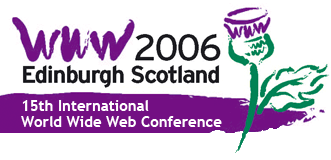Tony Hey
 As corporate vice president for technical computing, Tony Hey coordinates efforts across Microsoft Corp. to collaborate with the global scientific community. He is a top researcher in the field of parallel computing, and his experience in applying computing technologies to scientific research helps Microsoft work with researchers worldwide in various fields of science and engineering.
As corporate vice president for technical computing, Tony Hey coordinates efforts across Microsoft Corp. to collaborate with the global scientific community. He is a top researcher in the field of parallel computing, and his experience in applying computing technologies to scientific research helps Microsoft work with researchers worldwide in various fields of science and engineering.
Before joining Microsoft, Hey worked as head of the School of Electronics and Computer Science at the University of Southampton, where he helped build the department into one of the pre-eminent computer science research institutions in England. Since 2001, Hey has served as director of the United Kingdom’s e-Science Initiative, managing the government’s efforts to provide scientists and researchers with access to key computing technologies.
Hey is a fellow of the U.K.'s Royal Academy of Engineering and has been a member of the European Union's Information Society Technology Advisory Group. He also has served on several national committees in the U.K., including committees of the U.K. Department of Trade and Industry and the Office of Science and Technology. In addition, Hey has advised countries such as China, France, Ireland and Switzerland to help them advance their scientific agenda and become more competitive in the global technology economy. Hey received the award of Commander of the Order of the British Empire honor for services to science in the 2005 U.K. New Year’s Honours List.
Hey is a graduate of Oxford University, with both an undergraduate degree in physics and a doctorate in theoretical physics.
Synopsis
e-Science and Cyberinfrastructure: A Middleware Perspective
The Internet was the inspiration of J.C.R.Licklider when he was at the Advanced Research Projects Agency in the 1960's. In those pre-Moore's Law days, Licklider imagined a future in which researchers could access and use computers and data from anywhere in the world. Today, as everyone knows, the killer applications for the Internet were email in the 1970's and the World Wide Web in the 1990's which was developed initially as a collaboration tool for the particle physics academic community. In the future, frontier research in many fields will increasingly require the collaboration of globally distributed groups of researchers needing access to distributed computing, data resources and support for remote access to expensive, multi-national specialized facilities such as telescopes and accelerators or specialist data archives. In the context of science and engineering, this is the 'e-Science' agenda. Robust middleware services deployed on top of research networks will constitute a powerful 'Cyberinfrastructure' for collaborative science and engineering.
This talk will review the elements of this vision and describe the present status of efforts to build such an internet-scale distributed infrastructure based on Web Services. The goal is to provide robust middleware components that will allow scientists and engineers to routinely construct the inter-organizational 'Virtual Organizations'. Given the present state of Web Services, we argue for the need to define such Virtual Organization 'Grid' services on well-established Web Service specifications that are widely supported by the IT industry. Only industry can provide the necessary tooling and development environments to enable widespread adoption of such Grid services. Extensions to these basic Grid services can be added as more Web Services mature and the research community has had the opportunity to experiment with new services providing potentially useful new functionalities. The new Cyberinfrastructure will be of relevance to more than just the research community: it will impact both the e-learning and digital library communities allow the creation of scientific 'mash-ups' of services giving significant added value.
|

